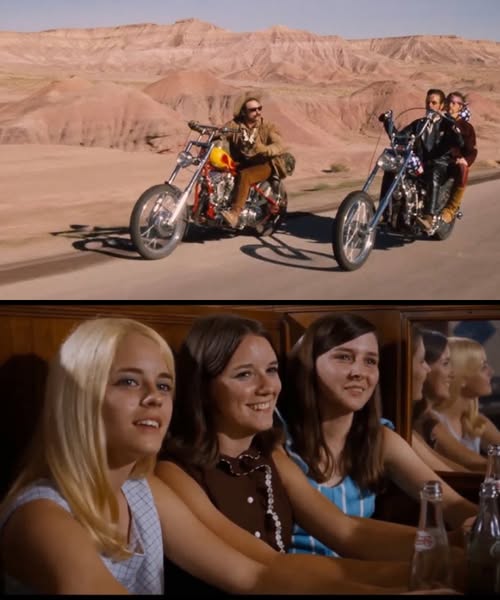Easy Rider (1969) is a landmark film in American cinema and a defining piece of the counterculture movement of the 1960s. Directed by and starring Dennis Hopper, with Peter Fonda and a breakout performance by Jack Nicholson, the film is both a road movie and a cultural time capsule—capturing a nation in flux, torn between freedom and fear, change and conservatism.
The story follows two bikers, Wyatt (Fonda) and Billy (Hopper), who score a big drug deal in Southern California and set off across the American Southwest on their Harley-Davidsons. With money stashed in Wyatt’s gas tank, they head toward New Orleans to experience Mardi Gras—but more importantly, to find meaning, connection, and a sense of America’s true soul.


As they travel through deserts, communes, small towns, and wide-open highways, they encounter both moments of openness and kindness, and deep-seated hostility. Along the way, they pick up George Hanson (Jack Nicholson), a boozy small-town lawyer who joins them and becomes an emblem of disillusionment and latent idealism.
With its iconic soundtrack featuring artists like Steppenwolf, The Byrds, and Jimi Hendrix, and its loose, improvisational style, Easy Rider broke conventional filmmaking molds and became a symbol of New Hollywood. The film’s final scenes are as shocking as they are symbolic—an unforgettable conclusion to a journey that was never just about the road, but about a nation’s restless soul.
Easy Rider isn’t just a movie—it’s a piece of cultural history. A film that captured the spirit of a generation and helped reshape American cinema forever.

